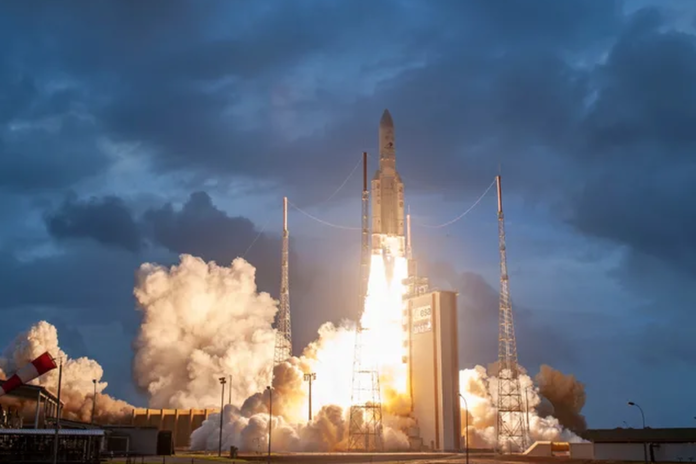Are the shareholders on the same page?
French GEO satellite company Eutelsat has announced that it’s “engaged in discussions with its co-shareholders in LEO equivalent OneWeb” with a view to creating an all-share combination with global leadership of their respective orbitals.
The talks hinge on a transaction that gives Eutelsat and OneWeb shareholders 50% each of the new combined entity. There is no certainty that the talks would result in any final agreement, Eutelsat said, but they would be better off working together. The ‘satellite connectivity’ market will be worth around $16 billion by 2030 and a pact would help them compete with SpaceX’s Starlink and Amazon’s Project Kuiper.
The tie-up would be politically sensitive, claimed Reuters, as it would bring together an explosive mixture of shareholders including Indian billionaire Sunil Bharti Mittal, France, China and Britain.
Demand for satellite launches is booming after recent sanctions have sidelined the Russian space launch industry. The space port city of Baikonur in Kazkakhstan, has suffered a devastating effect from sanctions. According to Moskovsky Komsomolets, which reports that the spaceport hosting city is practically deserted as all the Russian scientists and engineers have left the city. Meanwhile, French satellite Eutelsat as been accused of acting as a Russian war propaganda proxy, by Reporters Sans Frontiers (RSF) and press freedom campaigner the Diderot Committee, which have called on it to stop.
Demand for satellite connections is surging. There are increasing number of competitors looking to launch satellite constellations which could beam broadband internet from space. Three divisions of Telefónica, Telefónica Tech, Telefónica Global Solutions (TGS) and Sateliot, its satellite telecoms operator, have announced their objective to create a global satellite service using Low Earth Orbit (LEO) constellations to provide 5G NB-IoT connectivity. In addition, being compatible with 3GPP standards, the LEO will allow NB-IoT devices to synch with both existing terrestrial networks and the new satellite network.
Equipment maker Ericsson, French aerospace group Thales and US chipmaker Qualcomm are collaborating on a satellite-driven 5G network to improve terrestrial connectivity. In June AST SpaceMobile announced a scheme with similar ambitions to link satellite broadband to standard mobiles. It plans to launch its BlueWalker 3 test satellite on August 15 in Florida’s Cape Canaveral space complex, weather conditions permitting.


